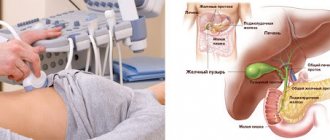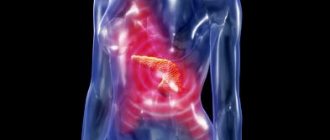Parasites
are organisms that use other living beings as a source of food or habitat, causing them harm. The word “parasite” is translated from Greek as parasite.
- Worms-Helminths
- Symptoms
- Diagnostics
- Treatment
- Our doctors
- Make an appointment
- Questions and answers
Parasites are very diverse. They can be microscopic or can reach several meters in length. Their habitats in the body are also different: intestines, liver, muscles, sometimes even the brain. In fact, parasites can live anywhere. If the parasite is worms (worms), the disease is usually called helminthiasis.
Uninvited “guests” of our body are dangerous for two reasons: they can both mechanically destroy organs and poison them with the products of their vital activity.
It is noteworthy that infection with parasites rarely leads to death. This is not surprising, because the parasite itself will die along with the host. Therefore, people can spend years being treated for a variety of ailments, attribute fatigue to a lack of vitamins, and allergies to poor ecology and heredity. But the cause of these problems may be a parasite that poisons the body. Not a single person in the world, regardless of his age and social status, can be protected from parasites entering his body.
Causes of helminthiasis infection
The content of the article
It is not difficult to introduce worms into your body. Here are just a few causes of infection that are familiar to everyone from childhood:
- Insufficient hygiene.
The desire to eat unwashed fruits and vegetables, not to wear gloves while working in the garden and not to bother with hygiene procedures leads to infection with a variety of helminths. - Addiction to street fast food.
It is no secret that sellers of such food do not always undergo medical examinations and often neglect basic hygiene. And their products are not stored in the best conditions. Lovers of street whites and pasties are another risk group. - Love of exotic cuisines
, including dishes made from raw fish and shellfish that contain parasites. It is to the fans of sushi and rolls that our country owes the increase in the incidence of flukes, tapeworms, nematodes, roundworms, and the lizard worm. - Inability to properly protect against infection during rest.
The love of Russians for the “Turkish shores” has led to increased cases of infection with exotic helminthiases - schistosomiasis, hookworm, and dracunculiasis. After walking barefoot on an overseas beach, you can bring back from your trip not only pleasant impressions, but also dangerous worms. - Infection from domestic animals
, which often sleep with their owners. Those who like to “kiss” their pet run the risk of contracting parasites.
How dangerous are worms?
A reasonable question: if the worms will most likely disappear on their own after some time, is it worth treating them? Doctors answer: this step is necessary.
Some types of worms have a very long lifespan and during this time they will have time to harm our health. But even parasites such as pinworms, which die after about a month, are harmful to the body.
Possible consequences of infection:
- The waste products of worms act on the human body as poisons or allergens, reducing overall well-being. An allergic reaction, in turn, can lead to Quincke's edema and death.
- Living in human tissues and organs, helminths damage them mechanically and interfere with normal functioning.
- Worm larvae, migrating throughout the body in the bloodstream or entering the respiratory tract, can clog blood vessels and cause bronchial obstruction.
- Some types of helminths disrupt the digestive process, which can lead to severe poisoning.
- Experts have discovered that there are helminths that cause cancer.
Worms are the most dangerous for children: in addition to a huge range of diseases and decreased immunity, they can cause developmental delays, both physical and mental.
What parasites live in the human body
If an adult had the opportunity to look into his body, he would be horrified:
- Roundworms -
pinworms, roundworms, whipworms, nematodes, Toxocara, Trichinella. Large helminths gather in huge balls, clogging the intestinal lumen and leading to obstruction, requiring surgical treatment. Doctors remove an incredible amount of parasites from the intestines of such people during surgery. - Tapeworms
appear in those who like to eat bloody meat and raw fish. They cause digestive problems, anemia, and allergies. Children experience seizures similar to epileptic seizures. The most dangerous helminth of this group is echinococcus, the larvae of which form huge cysts in the human body. When they rupture, the parasites disperse throughout the body. Infection can be fatal. - Flukes
- flukes, flukes and fasciolas - are dangerous parasites that suck blood from the vessels of the liver, pancreas, intestines, and bladder. - Protozoa
- leishmania, amoeba, giardia, etc. Although these tiny parasites are visible only under a microscope, they can cause dangerous complications, including intestinal perforation and liver abscesses, which are fatal.
Signs of infection depending on the type of helminths
The severity of symptoms depends on the following factors:
- number of parasites in the body;
- degree of immune activity;
- localization of parasites;
- a type of parasite.
Some helminths can remain in the host’s body for a long time without causing negative symptoms. Other individuals can instantly deteriorate in health and damage the liver. For example, roundworm.
Roundworms
Ascaris damages many internal organs and causes certain symptoms similar to other diseases. The following symptoms may appear:
- hyperthermia;
- persistent cough;
- severe fatigue;
- bronchitis, pneumonia.
First, the digestive tract is damaged, resulting in hypovitaminosis and metabolic disorders. The human body is depleted. Signs of gastrointestinal damage gradually form:
- yellowness of the skin;
- intestinal obstruction.
When worms spread through the blood-brain barrier, severe headaches, migraines, and depression appear.
Schistosomiasis, trichuriasis, hookworm disease, diphyllobothriasis
Parasites cause the following abnormalities:
- lack of nutrients and vitamins;
- decreased metabolism causing changes in body weight;
- intestinal dysbiosis.
Gradually, hypovitaminosis turns into vitamin deficiency, which leads to significant depletion of the body. A person's skin turns pale and he may faint frequently, which is characteristic of anemia.
Pinworms
Pinworms typically lay eggs in the anus; this process usually occurs at night. Therefore, a person is bothered by severe itching in the anus. The disease is characterized by periodic remission, so sometimes the itching stops. If there is no treatment, the helminthic infestation becomes extensive, so itching bothers the patient at any time of the day.
Trichinosis
The parasite penetrates into any part of the body and produces a large amount of toxins. This leads to constant spasms, cramps, and muscle pain. Due to damage to the cardiovascular system, edema forms. With severe intoxication, body temperature rises.
Fascioliasis, opisthorchiasis, clonorchiasis
This is one of the most dangerous helminths, leading to the following lesions:
- difficulty in liver function with the development of jaundice;
- intestinal obstruction, dyspeptic disorders when spreading throughout the gastrointestinal tract.
Gradually, the patient develops hepatosplenomegaly.
Urogenital schistosomiasis
Parasites actively spread throughout the genitourinary system. Due to the chronic inflammatory process, damage to the mucous membranes occurs. Therefore, when urinating, a person finds red urine, indicating the development of bleeding areas.
Why ultrasound is more effective than traditional examinations for worms and other parasites
Giving stool or scraping does not always reveal worms. The fact is that parasites have a certain development cycle and do not always lay eggs. There is a whole group of extraintestinal helminthiases, in which worms live outside the intestines. In this case, a stool test will not provide any information.
Ultrasound of the abdominal cavity shows changes characteristic of the presence of parasites in the liver and pancreas. It is harmless, non-traumatic and can be used many times.
If the doctor does not detect live helminths and 100% signs of their presence on the ultrasound, he will suspect infection and prescribe an additional examination. It is also useful to undergo an ultrasound if tests for worms are positive. The study will show where the parasites are hiding.
Therapy methods
It is prohibited to independently select medications against helminths, as they greatly affect the condition of the liver and kidneys. It is recommended to undergo an initial examination, after which specific medications are prescribed. The dosage is selected depending on the state of health, age, and body weight of the person.
The following methods of drug administration are selected:
- tablets – mild or moderate helminthiasis;
- injections, infusions - severe disease, the formation of an excessively large number of parasites, severe damage to the digestive tract.
Many drugs can only act on adults. If there is a risk of the presence of eggs and larvae, it is better to undergo a second course of therapy or choose a more potent remedy.
The table shows the optimal medications for treatment.
| A drug | Influence |
| Vermox | Contains mebendazole. Completely destroys pinworms, hookworms, whipworms, tapeworms and other parasites |
| Pirantel | Contains pyrantel pamoate. The substance destroys roundworm, is effective against enterobiasis and necatoriasis |
| Dekaris | Contains levamisole hydrochloride. Destroys roundworms and hookworms |
| Nemocid | Thanks to pyrantel pamoate, hookworm, ascariasis, and trichocephalosis are eliminated |
| Pirkon | Pyrvinia embonate helps to completely cure enterobiasis |
| Gelmadol | The main active ingredient is albendazole. It helps destroy most elements at the adult or larval stage |
| Helminthox | Pyrantel embonate eliminates pinworms, hookworms, roundworms at varying degrees of development |
Initially, it is recommended to identify the exact pathogen, only then apply the medicine. This will increase the chances of recovery without negative effects on the body.
Signs of helminthiasis determined by ultrasound of the abdominal cavity - half-living organs and live worms
When examining the gastrointestinal tract using modern 3D and 4D devices, doctors often see live parasites in the intestines. If helminths are not detected, their presence can be suspected by an enlarged pancreas, compacted in the head area. The spleen is also too large.
The liver is enlarged due to parasitic infection by flukes, trematodes and flukes. It reveals areas of dystrophy that impede the functioning of the organ.
The gallbladder also suffers. Patients experience stagnation of bile, causing pain in the right hypochondrium. Sometimes the function of the bladder is so impaired that the organ cannot be identified on ultrasound at all.
The presence of parasites leads to the formation of abscesses - purulent liver lesions that are life-threatening. In 85% of cases, abscesses form in one lobe of the liver. Other departments suffer less frequently. Purulent lesions are characteristic of hepatic amebiasis - infection with a protozoan - an amoeba that penetrates the liver region from the intestine.
Significant changes in the liver are observed during echinococcosis, a parasitic disease in which cavities filled with helminth larvae form inside the organ. Ultrasound shows round formations with clear boundaries. These are cysts that contain parasites. Over time, calcium is deposited around echinococcal lesions. Such formations have a dense structure, so on ultrasound they look lighter than the surrounding tissues.
With prolonged infection, large cysts with partitions are formed, resembling wheel spokes or large honeycombs. Destruction of the bile ducts is observed. Doppler examination reveals a disturbance in blood flow.
For lovers of Japanese cuisine. Parasites - as a gift
A wide variety of parasites are found in fans of Asian exotica, but the most common is opisthorchiasis - infection with the Chinese fluke. The source of helminths is unprocessed fish containing parasites.
At the onset of the disease, ultrasound reveals eosinophilic infiltrates in the liver and gallbladder—dense formations with clear boundaries. If the fight against helminths is postponed until better times, foci of dead cells will appear in these organs, looking like mottled areas, and the hepatic ducts will lose their elasticity. The situation may result in the development of liver failure.
If the urinary tract becomes victims of parasites
Echinococcus affects not only the liver, but also the kidneys. When the parasite penetrates the kidney tissue, a single-chamber cyst (bladder) containing larvae is formed. Gradually increasing in size, the hydatid cyst destroys the organ. Large parasitic cysts adhere to the liver, spleen and intestines.
Schistosomiasis is contracted by those who like to wander barefoot along the warm beaches of overseas countries. The larvae of the parasite penetrate the bloodstream through the skin and are then carried into the bladder with the blood. Having settled there, they cause the appearance of compactions - infiltrates that appear in response to irritation of the walls of the bladder. As the infection spreads, the kidneys are affected.
Enzyme immunoassay blood test - we bring helminths to clean water
This test can detect infection with one or more types of parasites. It is carried out for the presence of roundworms, toxocara, trichinella, opisthorchis flukes, echinococci, Chinese flukes, etc.
The testing principle is based on the body's immune response to the presence of helminths. Infection with worms causes the production of protein antibodies, which are detected during the analysis. Since each parasite provokes the formation of a certain immunoglobulin, the test results show which helminths are in the human body.
The analysis reacts to all forms of parasites - eggs, larvae, adult worms. The accuracy is more than 90%. The examination shows not only the presence of infection, but also its degree.
After treatment, the test is repeated. A positive result can be observed for some time after the death of the parasites. The concentration of immunoglobulins will gradually decrease for several more months. Then the analysis will become “clean”. For the study, blood is taken from a vein on an empty stomach in a volume of 3-5 ml. The analysis is done twice.
Ultrasound and immunoglobulin testing can identify helminth infections and begin treatment. Thanks to their use, the number of cases of incorrect diagnosis leading to complications has decreased. The main thing is to consult a doctor promptly if you suspect a helminthic infestation.
Treatment of helminthiasis
To cure a patient, he is relieved of parasites and their waste products. For treatment, anthelmintic drugs are used, selected taking into account the type of parasite and the patient’s condition. This should be done by a doctor, since all deworming tablets contain dangerous substances.
| Drug for treatment | Parasite |
| levamisole | roundworms |
| albendazole | roundworms, pinworms, intestinal eel, whipworm and other nematodes, |
| mebendazole | nematodes, pinworms, roundworms |
| pyrantel | pinworms, roundworms |
| praziquantel | liver and pulmonary fluke, broad tapeworm, pork and bovine tapeworm |
To expel large worms, the patient is prescribed a siphon enema. At the same time, make sure that the head of the helminth does not remain in the body, otherwise the parasite will grow again. To prevent re-infection, anthelmintic treatment is carried out in several courses.
After expelling the worms, drip infusions of solutions, restoratives and vitamins are prescribed. Restore the functions of organs affected by parasites.
Head lice can be eliminated using special sprays and mercury ointment. If pubic lice are detected, the hair in the groin area is shaved.
Sulfur ointment, benzyl benzonate and a number of other drugs are used to treat scabies. Demodicosis is treated with complex external agents, which include mercury, tar, zinc, and sulfur.











